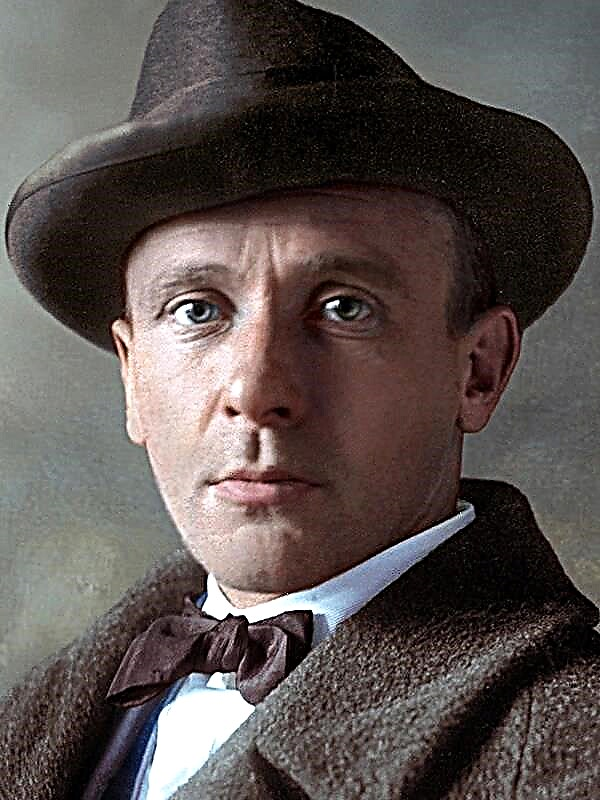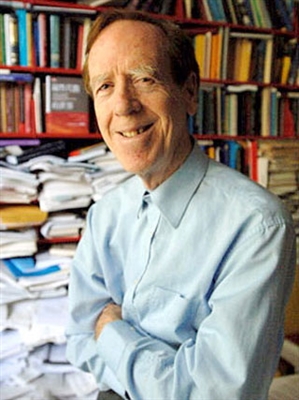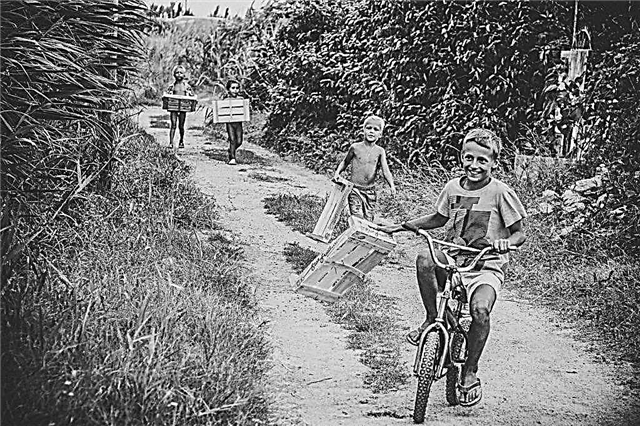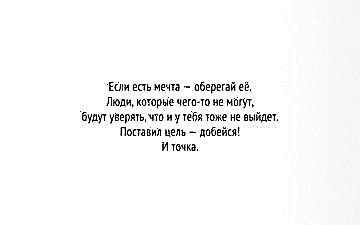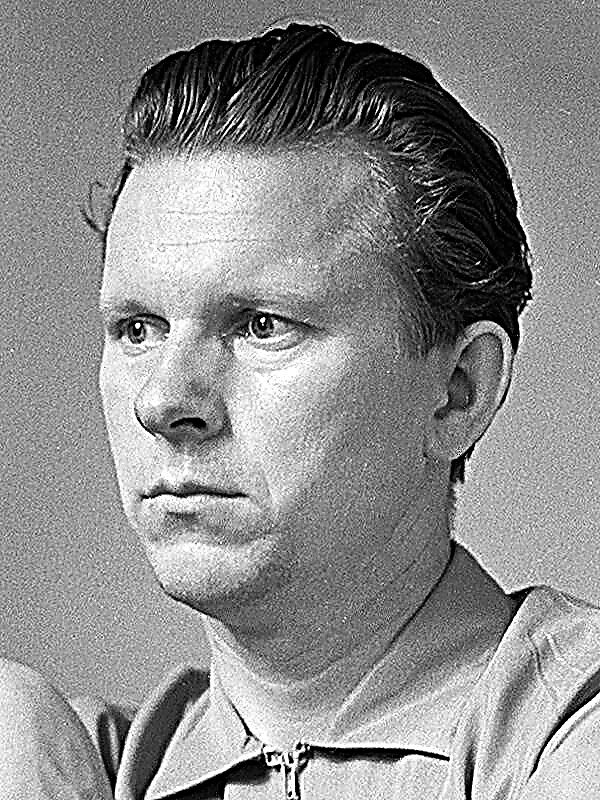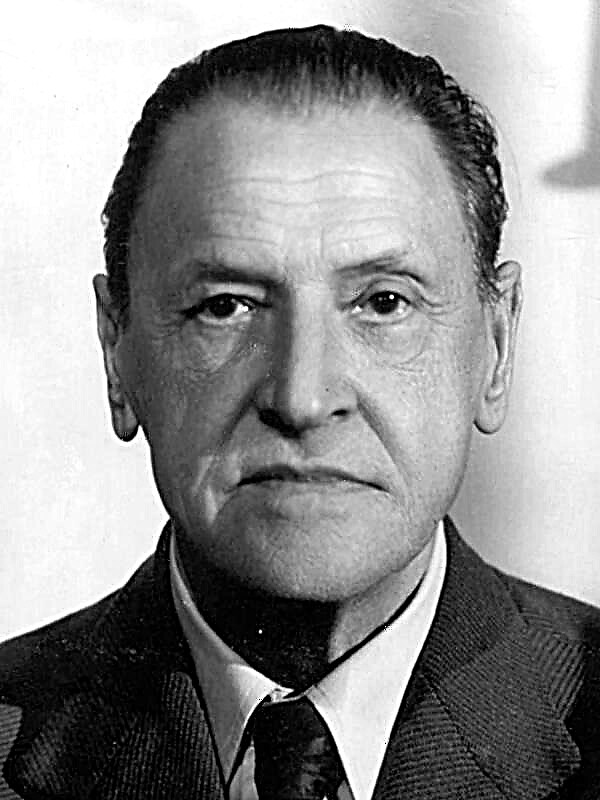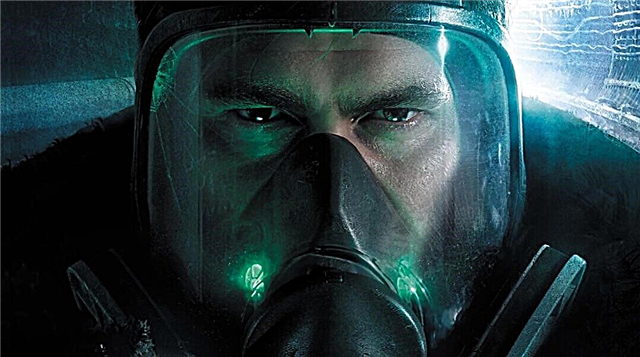The tragedy opens with three introductory texts. The first is a lyrical dedication to the friends of youth - those with whom the author was associated at the beginning of work on Faust and who have already died or are away. “I remember all those who lived that radiant noon again gratefully.”
Then follows the "Theater introduction." In a conversation between the Director of the Theater, the Poet and the Comic actor, problems of artistic creativity are discussed. Should art serve the idle crowd or be faithful to its high and eternal purpose? How to combine true poetry and success? Here, as well as in the Initiation, the motive of the transience of time and the irretrievably lost youth, nourishing creative inspiration, sounds. In conclusion, the Director gives advice more decisively to get down to business and adds that the Poet and the Actor have at their disposal all the achievements of his theater. "In this plank booth you can, as in the universe, go through all tiers in a row, descend from heaven through the earth to hell."
The issue of “heaven, earth and hell”, indicated in one line, develops in the “Prologue in Heaven” - where the Lord, the archangels and Mephistopheles already act. The archangels, singing the glory of the deeds of God, are silent at the appearance of Mephistopheles, who from the very first remark - “I have come to you, God, to receive ...” - as if bewitches with his skeptical charm. In the conversation for the first time the name Faust sounds, which God gives as an example as his faithful and heartfelt slave. Mephistopheles agrees that “this aesculapius” “is eager for battle, and loves to take obstacles, and sees a target that attracts in the distance, and demands stars from the sky as a reward and better pleasures on the ground,” noting the scientist’s contradictory dual nature. God permits Mephistopheles to expose Faust to any temptation, bring him to any abyss, believing that intuition will lead Faust out of the impasse. Mephistopheles, as the true spirit of denial, accepts the argument, promising to force Faust to grovel and "eat <...> dust from the shoe." A grandiose scale struggle between good and evil, the great and the insignificant, the high and the low, begins.
... The one about whom this argument is concluded spends a night without sleep in a cramped Gothic room with a vaulted ceiling. In this working cell, for many years of hard work, Faust comprehended all the earthly wisdom. Then he dared to encroach on the secrets of supernatural phenomena, turned to magic and alchemy. However, instead of satisfaction in his declining years, he feels only spiritual emptiness and pain from the vanity of his deed. “I took possession of theology, I pored over philosophy, hollowed on jurisprudence and studied medicine. However, I was still a fool at the same time ”- this is how he begins his first monologue. Unusual in strength and depth, the mind of Faust is marked by fearlessness before the truth. He is not deceived by illusions and therefore ruthlessly sees how limited are the possibilities of knowledge, how the riddles of the universe and nature are incomparable with the fruits of scientific experience. The praises of assistant Wagner are ridiculous to him. This pedant is ready to diligently gnaw at the granite of science and pore over parchments, without thinking about the cornerstone problems that torment Faust. “All the charm of the spell will be dispelled by this boring, intolerable, limited schoolboy!” - the scientist speaks about Wagner in hearts. When Wagner, in arrogant stupidity, utters that a person has grown to know the answer to all his riddles, annoyed Faust stops the conversation. Left alone, the scientist again plunges into a state of gloomy hopelessness. The bitterness of the realization that life passed in the dust of empty occupations, among bookshelves, vials and retorts, leads Faust to a terrible decision - he is preparing to drink poison to end the earth’s share and merge with the universe. But at the moment when he brings a poisoned glass to his lips, the ringing of bells and choral singing is heard. Easter night is coming, the Gospel saves Faust from suicide. “I am returned to the earth, thanks for this to you, holy songs!”
The next morning, together with Wagner, they join the crowd of festive people. All the surrounding inhabitants venerate Faust: both he and his father treated people tirelessly, saving them from serious illnesses. Neither pestilence nor plague scared the doctor; he, without flinching, entered the infected hut. Now ordinary citizens and peasants bow to him and give way. But this sincere recognition does not please the hero. He does not overestimate his own merits. On a walk, a black poodle is nailed to them, which Faust then brings to his home. Seeking to overcome the lack of will and spirit of decline that possessed him, the hero is taken for the translation of the New Testament. Rejecting several variations of the initial line, he dwells on the interpretation of the Greek “logos” as a “deed” rather than a “word”, making sure: “In the beginning was a deed,” the verse reads. However, the dog distracts him from classes. And finally, she turns around Mephistopheles, who first appears Faust in the clothes of a wandering student.
To the host’s wary question about the name, the guest replies that he "is part of the strength of that which, without a number, does good, wishing all evil." The new interlocutor, in contrast to the dull Wagner, is equal to Faust in intelligence and power of insight. The guest chuckles condescendingly and caustically at the weaknesses of human nature, at the human destiny, as if penetrating the very core of the torment of Faust. Intrigued by the scientist and taking advantage of his nap, Mephistopheles disappears. The next time he appears smartly dressed and immediately offers Faust to dispel anguish. He persuades the old hermit to put on a bright dress and in this "clothing peculiar to hangers, to taste after a long post, which means life is full." If the proposed pleasure captures Faust so much that he asks to stop the moment, then he will become the prey of Mephistopheles, his slave. They fasten the deal with blood and go on a journey - right through the air, on Mephistopheles wide cloak ...
So, the scenery of this tragedy are the earth, heaven and hell, its directors are God and the devil, and their assistants are numerous spirits and angels, witches and demons, representatives of light and darkness in their endless interaction and confrontation. How attractive is the main tempter in his mocking omnipotence - in a golden camisole, in a hat with a cock feather, with a draped hoof on his leg, which makes him slightly lame! But his companion, Faust, is a match - now he is young, handsome, full of strength and desire. He tasted a potion brewed by a witch, after which his blood boiled. He no longer knows the hesitation in his determination to comprehend all the secrets of life and the pursuit of higher happiness.
What temptations did the lame-footed companion prepare for the fearless experimenter? Here is the first temptation. She is called Margarita, or Gretchen, she is fifteen, and she is pure and innocent, like a child. She grew up in a wretched town, where at the well, the gossips gossip about everyone and everything. She and her mother buried their father. A brother serves in the army, and the younger sister, whom Gretchen nursed, recently died. There is no maid in the house, so all household and gardening is on her shoulders. “But how sweet the eaten piece, how precious the rest is and how deep the dream!” This ingenuous soul was destined to confuse the wise Faust. Having met the girl on the street, he flushed up to her with insane passion. The Devil's Pivot immediately offered his services - and now Margarita answers Faust with an equally fiery love. Mephistopheles urges Faust to finish the job, and he cannot resist it. He meets Margarita in the garden. One can only guess what kind of whirlwind is raging in her chest, how immeasurably her feeling, if she - before that very righteousness, meekness and obedience - not only surrenders to Faust, but also lulls the strict mother on his advice so that she does not interfere with the dates.
Why is Faust so attracted to this commoner, naive, young and inexperienced? Perhaps with her he acquires a sense of earthly beauty, goodness and truth, to which he had previously sought? For all her inexperience, Margarita is endowed with spiritual vigilance and an impeccable sense of truth. She immediately discerns in Mephistopheles the messenger of evil and languishes in his company. "Oh, the sensitivity of angelic guesses!" - drops Faust.
Love gives them blinding bliss, but it also causes a chain of misfortunes. By chance, Margarita’s brother Valentin, passing her window, ran into a couple of “boyfriends” and immediately rushed to fight them. Mephistopheles did not back down and drew his sword. At the sign of the devil, Faust also got involved in this battle and killed his beloved brother. Dying, Valentine cursed his reverent sister, betraying her general shame. Faust did not immediately find out about her further troubles. He fled from the reckoning for the murder, hurrying out of the city after his counselor. But what about Margarita? It turns out that she involuntarily killed her mother with her own hands, because she once did not wake up after a sleepy potion. Later, she gave birth to a daughter - and drowned her in the river, fleeing from worldly wrath. Kara did not pass her - an abandoned beloved, branded as a harlot and a murderer, she was imprisoned and awaiting execution in blocks.
Her beloved is far away. No, not in her arms, he asked for a moment to wait. Now, together with the inseparable Mephistopheles, he rushes not to somewhere, but to Brocken himself - on this mountain in Walpurgis Night the witch's coven begins. A true bacchanalia reigns around the hero - witches sweep past, demons, kikimors and devils call each other, everything is embraced by revelry, mocking the elements of vice and fornication. Faust does not feel fear of the evil spirits sweeping everywhere, which reveals itself in all the polyphonic revelation of shamelessness. This is the breathtaking ball of Satan. And now Faust chooses a younger beauty here, with whom she starts dancing. He leaves her only when a pink mouse suddenly jumps out of her mouth. “Thank you that the mouse is not sulfur, and do not grieve so deeply about it,” Mephistopheles condescendingly complains about his complaint.
However, Faust does not listen to him. In one of the shadows, he guesses Margarita. He sees her imprisoned in a prison, with a terrible bloody scar on her neck, and gets colder. Rushing to the devil, he demands to save the girl. He objected: was not Faust himself a seducer and executioner? The hero does not want to hesitate. Mephistopheles promises him to finally euthanize the guards and enter the prison. Riding on horses, two conspirators rush back to the city. They are accompanied by witches, who sense the imminent death on the scaffold.
The last date of Faust and Margarita is one of the most tragic and soulful pages of world poetry.
Having drunk all the boundless humiliation of public shame and suffering from her sins, Margarita lost her mind. Straight-haired, barefoot, she sings in captivity children's songs and flinches with every rustle. When Faust appears, she does not recognize him and cringes on the litter. He listens in desperation to her crazy speeches. She babbles something about a ruined baby, begs not to lead her under the ax. Faust kneels in front of the girl, calls her by name, breaks her chains. Finally, she realizes that before her is a Friend. “I don’t dare to believe ears, where is he?” Hurry to his neck! Hurry, hurry to his chest! Through the darkness of the dungeon inconsolable, through the flames of hellish darkness, and hooting and howling ... "
She does not believe her happiness, that she is saved. Faust feverishly rushes her to leave the dungeon and flee. But Margarita hesitates, plaintively asks to caress her, reproaches that he is unaccustomed to her, “forgot to kiss” ... Faust again teaches her and conjures her to rush. Then the girl suddenly begins to remember her mortal sins - and the unsophisticated simplicity of her words makes Faust cool with a terrible foreboding. “I lulled my mother to death, my daughter drowned in a pond. God thought to give it to us for happiness, but gave it to trouble. ” Interrupting the objections of Faust, Margarita proceeds to the last covenant. He, her coveted, must necessarily stay alive in order to dig three pits on the side of the day with a shovel: for mother, for brother and third for me. Dig mine aside, put it nearby and put the baby closer to my chest. ” Margarita again begins to pursue the images of the victims through her fault - she sees a trembling baby, whom she drowned, a sleepy mother on a hill ... She tells Faust that there is no worse fate than "staggering with the conscience of the patient," and refuses to leave the dungeon. Faust tries to stay with her, but the girl drives him. Mephistopheles appeared in the doorway rushing Faust. They leave the prison, leaving Margarita alone. Before leaving, Mephistopheles throws that Margarita was condemned to torment as a sinner. However, a voice from above corrects him: "Saved." Having preferred martyrdom, God's judgment, and sincere repentance to escape, the girl saved her soul. She refused the services of the devil.
At the beginning of the second part we catch Faust, who was forgotten in a green meadow in a disturbing dream. Flying forest spirits give peace and oblivion to his soul tormented by remorse. After some time, he wakes up healed, watching the sunrise. His first words are addressed to the dazzling luminary. Now Faust understands that the disproportion of the goal to the possibilities of man can destroy, like the sun, if you look at him point blank. He loves the image of the rainbow, "which, with a seven-color game, makes variability constancy." Having gained new strength in unity with beautiful nature, the hero continues to climb the steep spiral of experience.
This time Mephistopheles leads Faust to the imperial court. In the state where they went, discord reigns because of the impoverishment of the treasury. No one knows how to fix things except Mephistopheles, who posed as a jester. The adversary develops a replenishment plan, which he soon brilliantly implements. He puts into circulation securities, the guarantee of which is declared the content of the earth's bowels. The devil assures that there is a lot of gold in the earth that will be found sooner or later, and this will cover the value of securities. A fooled population eagerly buys stocks, “and the money flowed from the purse to the wine merchant, to the butcher's shop. Half the world was washed down, and the other half sew updates at the tailor. ” It is clear that the bitter fruits of the scam will sooner or later affect, but while euphoria reigns at the court, a ball is organized, and Faust, as one of the sorcerers, enjoys unprecedented veneration.
Mephistopheles gives him the magic key, which makes it possible to penetrate the world of pagan gods and heroes. Faust leads to a ball to the emperor of Paris and Helen, personifying male and female beauty. When Elena appears in the hall, some of the ladies present criticize her. “Slim, big. And the head is small ... The leg is disproportionately heavy ... ”However, Faust feels with his whole being that before him is the cherished spiritual and aesthetic ideal. He compares the blinding beauty of Elena with a gushing stream of radiance. “How dear to me the world, how it was for the first time full, attracting, authentic, unverified! However, his desire to keep Elena does not give a result. The image fades and disappears, an explosion is heard, Faust falls to the ground.
Now the hero is obsessed with the idea of finding the beautiful Elena. A long journey awaits him through the strata of eras. This path runs through his former workers' workshop, where he will take him to the oblivion of Mephistopheles. We will meet again with a zealous Wagner, waiting for the teacher to return. This time, the learned pedant is busy creating an artificial person in the flask, firmly believing that "the survival of the former children is an absurdity for us, handed over to the archive." In front of the grinning Mephistopheles, a Homunculus is born from a bulb, suffering from the duality of its own nature.
When finally the stubborn Faust will find the beautiful Helen and connect with her and they will have a child who is marked by genius - Goethe has embedded Byron's features in his image - the contrast between this beautiful fruit of living love and the unfortunate Homunculus will be revealed with particular strength. However, the beautiful Euphorion, the son of Faust and Elena, will not live long on earth. He is attracted by the struggle and challenge to the elements. “I am not an outsider, but a participant in the battles of the earth,” he says to his parents. It rises up and disappears, leaving a luminous trail in the air. Elena embraces Faust goodbye and remarks: “An old saying comes true that happiness doesn’t get along with beauty ...” Only Faust’s clothes remain in her hands - the bodily disappears, as if signifying the transitory character of absolute beauty.
Mephistopheles in seven-mile boots returns the hero from harmonious pagan antiquity to his native Middle Ages. He offers Faust various options for how to achieve fame and recognition, but he rejects them and talks about his own plan. From the air, he noticed a large piece of land, which is annually flooded by the tide, depriving the land of fertility. Faust is in possession of the idea of building a dam so that "at any cost from the abyss, a piece of land can be recaptured." Mephistopheles, however, objects that for now it is necessary to help their acquaintance, the emperor, who, after deceiving with securities, having lived quite a bit, was faced with the threat of losing his throne. Faust and Mephistopheles lead a military operation against the enemies of the emperor and gain a brilliant victory.
Now Faust is eager to begin to carry out his cherished plan, but nothing prevents him. In place of the future dam stands a hut of the old poor - Philemon and Bavkida. Stubborn old people do not want to change their home, although Faust offered them a different shelter. In impatient impatience, he asks the devil to help deal with stubborn people. As a result, the unfortunate couple - and with them the guest wanderer who looked up to them - ruthless reprisals. Mephistopheles and the guards kill the guest, the elderly die from shock, and the hut engulfs the flames of an accidental spark. Experiencing once again the bitterness of the irreparableness of what happened, Faust exclaims: “I offered me money, not violence, not robbery. For deafness to my words, curse you, curse you! ”
He is tired. He is old again and feels that life is coming to an end again. All his aspirations are now concentrated in achieving the dream of a dam. Another blow awaits him - Faust goes blind. He is surrounded by night darkness. However, he distinguishes between the sound of shovels, movement, voices. Violent joy and energy take hold of him - he understands that the cherished goal is already squeamish. The hero begins to give out feverish commands: “Get up to work as a friendly crowd! Scatter the chain where I point. Pickaxes, shovels, wheelbarrows to excavators! Align the shaft according to the drawing! ”
The blind Faust is not aware that Mephistopheles played an insidious thing with him. Around Faust, builders were not poking around in the earth, but lemurs, evil spirits. At the direction of the devil, they dig a tomb of Faust. The hero, meanwhile, is full of happiness. In an emotional outburst, he utters his last monologue, where he concentrates the experience gained on the tragic path of knowledge. Now he understands that neither power, nor wealth, nor glory, nor even possession of the most beautiful woman on earth will give a truly higher moment of existence. Only a common act, equally needed by everyone and realized by everyone, can give life a higher fullness. This is how the semantic bridge extends to the discovery made by Faust before meeting Mephistopheles: “In the beginning, there was a thing.” He understands, "only the one who has known the battle for life, has earned life and freedom." Faust utters secret words that he is experiencing his highest moment and that “a free people in a free land” seems to him such a grandiose picture that he could stop this moment. Immediately his life ends. He falls back. Mephistopheles is looking forward to the moment when he rightfully takes possession of his soul. But at the last minute, angels take Faust’s soul right in front of the devil’s nose. For the first time Mephistopheles betrays self-control, he rages and curses himself.
Faust’s soul is saved, which means that his life is ultimately justified. Beyond the brink of earthly existence, his soul meets the soul of Gretchen, who becomes his vehicle in another world.
... Goethe finished Faust before his death. "Forming like a cloud," according to the writer, this plan accompanied him all his life.

